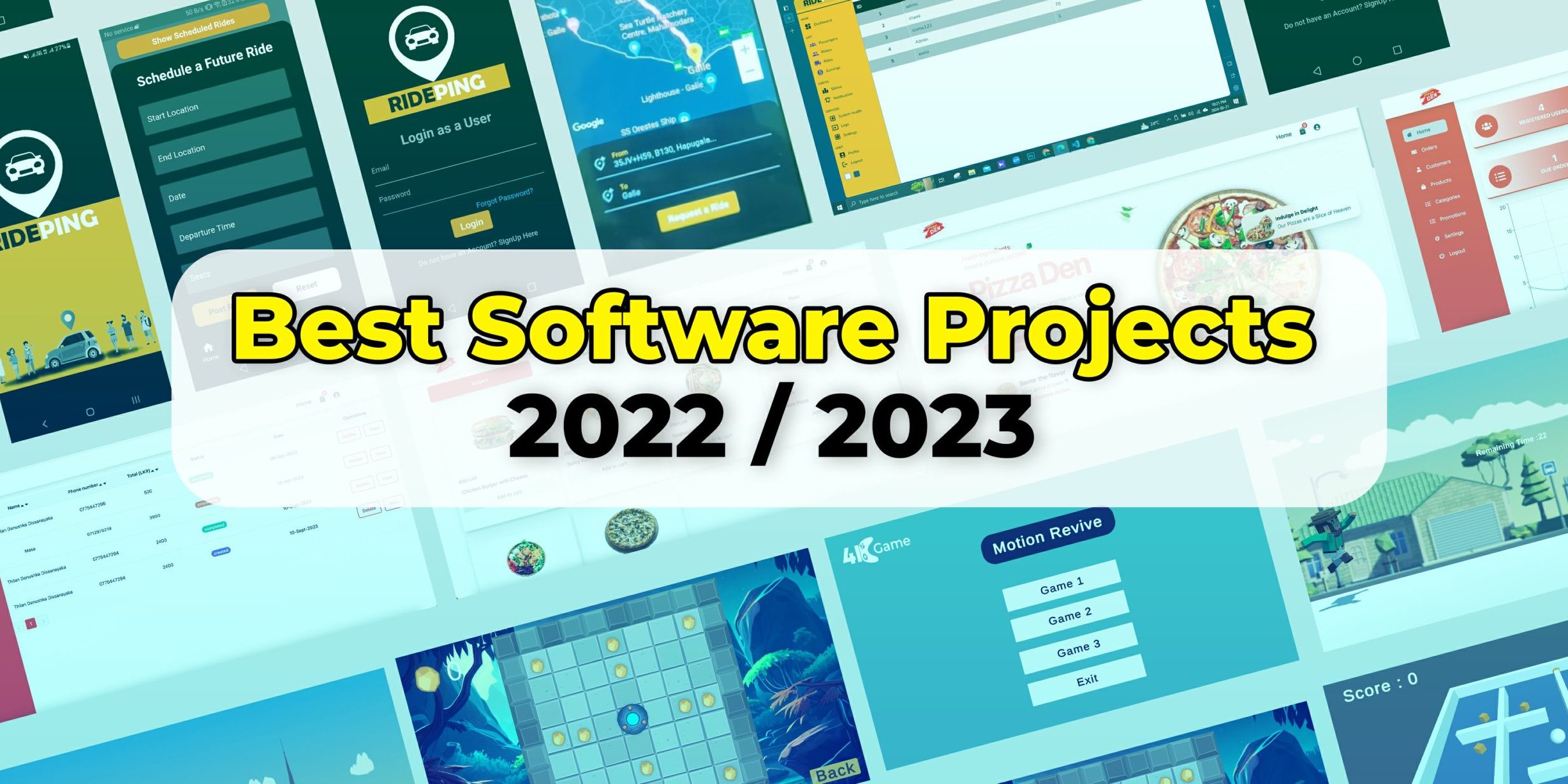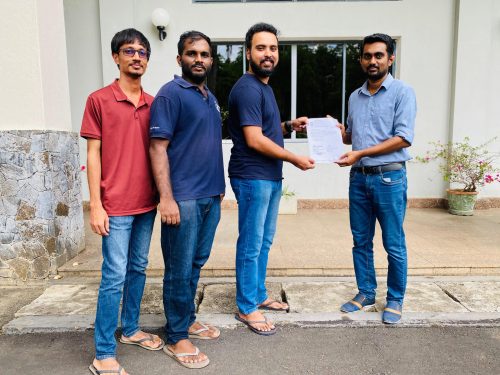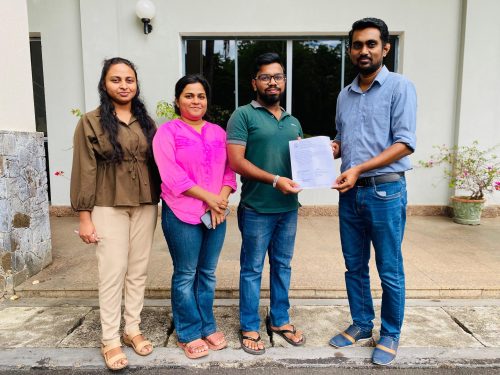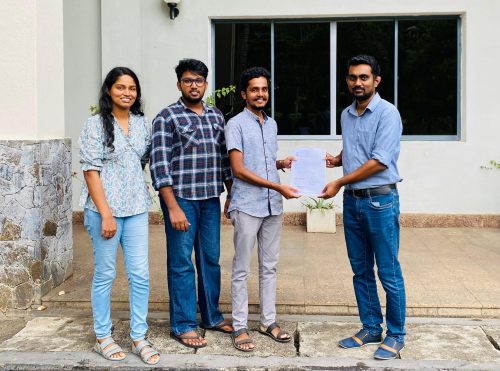The third year students recently completed their software project modules in which they developed complete software systems for identified problems/applications. Out of 19 projects, the following three projects scored the highest marks and selected as the best software projects in the year 2022/2023.
Top - Ranked Groups
Carpooling is a transportation arrangement where multiple individuals share a single vehicle to travel in a common direction. This practice offers several advantages, including reducing traffic congestion, lowering fuel costs, minimizing carbon emissions, and promoting social interaction. By sharing rides, carpooling also helps alleviate parking shortages and contributes to a more sustainable and eco-friendly mode of transportation.
Our carpooling app serves as a platform for connecting users with drivers offering rides. Through the app, users can request rides, view available drivers within the area, view real-time tracking during a ride, get trip details, and schedule future rides. The admin panel website complements the app by providing administrators with the tools to manage passengers and drivers, monitor rides, view payment details and earnings, and ensure compliance with safety guidelines.
 The mobile application is built using Flutter for cross-platform compatibility, while the admin panel website is developed using React.js and Node.js. Firebase manages the backend services as well as real-time cloud database services.
The mobile application is built using Flutter for cross-platform compatibility, while the admin panel website is developed using React.js and Node.js. Firebase manages the backend services as well as real-time cloud database services.
GitHub links – Mobile, Web_App
• Gunawardhana P.K.K.C. – EG/2019/3596
• Dissanayake D.T.B.C.S.B. – EG/2019/3578
• Gunathilaka A.I.S. – EG/2019/3591
• Appu J.A.A.P. – EG/2019/3531
This online food ordering system was developed for Pizza Den, a beloved pizza shop based in Galle. This initiative marked a significant transformation for Pizza Den, which previously did not offer online meal ordering. Our team was tasked with enhancing their customer reach and modernizing their service offerings by introducing a digital solution that would redefine their business operations.
Node.js, Express.js, and MongoDB-based backend APIs were developed, ensuring robust and efficient data management and server-side functionalities. The frontend was crafted using React.JS and TailWind CSS, allowing a visually appealing and intuitive user interface to be created. Also, other technologies and libraries such as Redux, Axio, JOI, etc. were used. to build the complete infrastructure.
The website that was created enabled customers to effortlessly browse Pizza Den’s menu, choose their preferred items, and place orders online. This new functionality introduced a level of convenience previously unavailable, allowing customers to enjoy Pizza Den’s offerings from the comfort of their own homes. Additionally, the site included interactive features to engage users and a secure payment system to handle transactions safely and efficiently.

A mobile application was also developed specifically for the shop operators to complement the customer-facing website. Designed to streamline order management and improve the efficiency of the delivery process, the app included features that allowed for real-time updates and better coordination. This greatly facilitated the shop operators in handling operations smoothly, ensuring that customers received their orders promptly and accurately. For this, Flutter was used as the technology.
The whole project was deployed with the help of a Linux server. Overall, it was a complete commercial software development with QA, BA, security testing, stress testing, etc.
GitHub links – https://github.com/Thil4n/pizza-den.git
• Dissanayaka U.G.T.D. – EG/2019/3577
• Pitumpe P.A.C.M.S. – EG/2019/3699
• Ranasinghe R.A.S.N. – EG/2019/3712
Stroke is a debilitating condition. Traditional rehabilitation is often costly and geographically limited, prompting exploration into novel stroke rehabilitation methods. The objective is to create a game platform using motion tracking, tailored to individual patient needs and track the progress of the rehabilitation.
Here we integrated motion tracking technology, employing OpenCV and Python to capture and process patient hand movements. Hand gestures were integrated for control of three off-the-shelf games. These were transmitted to the Unity game engine, enabling the generation of realistic avatar movements mapped to the hand gestures. Visual feedback was enabled and different levels of difficulty used to track progression.
 Three distinct games were developed. Game 1 “rock pick up” requires the patient to sweep rocks on the screen using their palms. The difficulty is increased by placing rocks closer in proximity. Game 1 targets palm and wrist improvement across three escalating difficulty levels. Game 2 “running man” focuses on enhancing fingers and wrist movements. Improvements of each of the fingers in both hands can be analyzed. Once the finger digit is selected for playing, the game ignores other digits and only focuses on the specified digit. The difficulty can be changed by changing the speed of the avatar. In Game 3 “roll a ball”, patients should virtually push the ball using the fist to collect gold and can stop the ball by squeezing the hand in a grip to avoid obstacles. Difficulty is increased by adding limitations for the game movements like adding more corners and moving obstacles. A secure login system connected to a local database grants exclusive access to patients, ensuring the therapy records.
Three distinct games were developed. Game 1 “rock pick up” requires the patient to sweep rocks on the screen using their palms. The difficulty is increased by placing rocks closer in proximity. Game 1 targets palm and wrist improvement across three escalating difficulty levels. Game 2 “running man” focuses on enhancing fingers and wrist movements. Improvements of each of the fingers in both hands can be analyzed. Once the finger digit is selected for playing, the game ignores other digits and only focuses on the specified digit. The difficulty can be changed by changing the speed of the avatar. In Game 3 “roll a ball”, patients should virtually push the ball using the fist to collect gold and can stop the ball by squeezing the hand in a grip to avoid obstacles. Difficulty is increased by adding limitations for the game movements like adding more corners and moving obstacles. A secure login system connected to a local database grants exclusive access to patients, ensuring the therapy records.
This game platform, an innovative methodology leveraging motion tracking and personalized game experiences to enhance therapy for stroke patients shows great potential to use for rehabilitation.
GitHub links – https://github.com/Kavindu-coding/game-for-stroke
• Kheminda D.A.J.P – EG/2019/3636
• Kumarasinghe K.A.G.T.V – EG/2019/3645
• Kumarasinghe K.G.K.I – EG/2019/3646
• Kumarasiri I.P.M.P – EG/2019/3647










